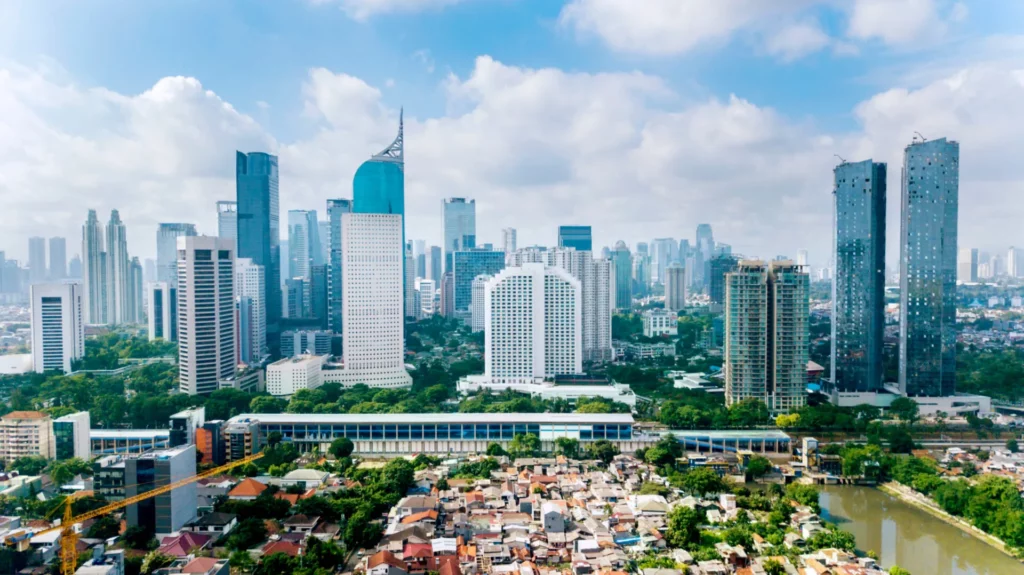Navigating Indonesia’s Legal Landscape in 2025: Reforms, Challenges, and Future Directions

As Indonesia steps into 2025, the nation’s legal framework is undergoing significant transformations aimed at restoring public trust and enhancing the efficacy of law enforcement agencies. This article delves into the recent reforms, the challenges faced, and the future directions of Indonesia’s legal system.
Restoring Public Trust in Law Enforcement
In recent years, Indonesia has witnessed a series of incidents that have tarnished the image of its law enforcement agencies. High-profile cases involving officials from the police, judiciary, and other legal institutions have raised concerns about integrity and accountability. For instance, arrests of individuals ranging from the Chief Justice of the Constitutional Court to Supreme Court clerks and judges have highlighted systemic issues within these institutions. Advocate Jhon S.E Panggabean emphasized that such misconduct has deep-rooted cultural origins and called for collective responsibility among all legal enforcers to prevent future occurrences. He urged leaders of law enforcement agencies to enforce ethical codes and conduct thorough oversight of their members, aiming to rebuild public confidence in the legal system.
Educational Initiatives: Bridging the Gap Between Judiciary and Public
To demystify the judicial process and foster a better understanding among the populace, the Supreme Court of Indonesia organized the “Kampung Hukum” (Law Village) exhibition in February 2025. Held at the Supreme Court’s West Parking Area in Jakarta, this two-day event featured participation from various units within the Supreme Court, including the Directorate General of the General Judiciary. Other law enforcement bodies such as the Attorney General’s Office, the Financial Transaction Reports and Analysis Center (PPATK), the Audit Board of Indonesia (BPK), the Corruption Eradication Commission (KPK), and the National Police also took part. The exhibition served as a platform to educate the public about the judicial system, legal services, and the roles of different law enforcement agencies, thereby promoting transparency and trust.
Thematic Focus for 2025: Intellectual Property Rights
Recognizing the pivotal role of intellectual property (IP) in economic growth and cultural preservation, the Ministry of Law and Human Rights declared 2025 as the “Year of Copyright and Industrial Design.” This initiative aims to encourage creators and designers to seek legal protection for their works, ensuring their rights are safeguarded. Minister Supratman Andi Agtas highlighted the success of 2024’s focus on Geographical Indications (GI), noting a 324% increase in GI registrations compared to the previous year. Building on this momentum, the 2025 thematic year seeks to further enhance awareness and protection of IP rights, contributing to Indonesia’s creative and industrial sectors.
Accelerating Legal Reforms
The conclusion of 2024 has intensified public expectations for accelerated legal reforms in 2025. Aldwin Rahadian, a legal practitioner and Presidium of the Indonesian Advocates Congress (KAI), stressed the urgency of transforming the national legal system to address structural issues hindering justice and legal certainty. This transformation is deemed essential to tackle complex challenges across various sectors and to ensure that the legal system aligns with contemporary societal needs.
Unified Efforts for Enhanced Public Service
In a demonstration of commitment to improved public service, the Coordinating Ministry for Law, Human Rights, Immigration, and Corrections held a joint assembly in early January 2025. Minister Yusril Ihza Mahendra called for synergy and collaboration among all departments to elevate the quality of public services. He outlined strategies including the formulation of strategic plans aligned with national priorities, efficient budget utilization, and continuous performance evaluation. These measures aim to create a cohesive approach to legal governance and public service delivery.
Taxation Law: A Progressive Approach
In the realm of taxation, the government introduced Regulation No. 131/2024 concerning Value Added Tax (VAT) policies. This regulation adopts a novel approach by implementing a different base value for VAT calculations, particularly for non-luxury goods and services widely consumed by the public. This policy is designed to manage taxation effectively without imposing additional burdens on society, reflecting a progressive shift in fiscal policy.
Academic Perspectives: Reflecting and Projecting Legal Developments
The Faculty of Law at Gadjah Mada University hosted the “Bulaksumur Legal Outlook 2025,” a forum aimed at reflecting on the legal developments of 2024 and projecting future trends for 2025. Discussions covered critical areas such as democracy, human rights, and anti-corruption efforts. Experts analyzed the challenges faced during the 2024 elections and the implementation of National Strategic Projects (PSN), questioning their alignment with public interest versus business motives. Such academic forums play a crucial role in scrutinizing legal policies and offering recommendations for future improvements.
Looking Ahead: The 2023 Criminal Code Implementation
A significant milestone in Indonesia’s legal history is the enactment of the new Criminal Code in January 2023, set to take effect in January 2026. This comprehensive legislation, comprising 624 articles, replaces the colonial-era code and introduces provisions that recognize customary laws (adat) alongside formal legal structures. The code also revises classifications of crimes and implements a system of fine categories. As the implementation date approaches, it is imperative for legal practitioners, law enforcement agencies, and the public to familiarize themselves with the new provisions to ensure a smooth transition and effective application of the law.
Conclusion
The year 2025 stands as a pivotal period for Indonesia’s legal system, marked by concerted efforts to restore public trust, protect intellectual property rights, accelerate legal reforms, and prepare for the implementation of the new Criminal Code. Through collaborative initiatives between government bodies, educational institutions, and the public, Indonesia aims to cultivate a legal environment that is just, transparent, and responsive to the evolving needs of its society.

